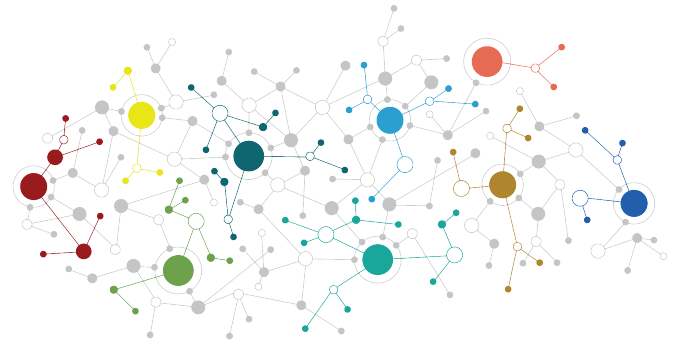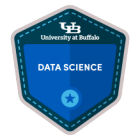Connecting the Dots Program
Connecting Data Scientists with Industry Professionals

UB's School of Engineering and Applied Sciences is looking for companies, non-profit agencies and government entities big and small who need data-savvy interns.

As part of New York State’s Connecting the Dots program, students enrolled in our Data Science Micro-Credential are required to participate in a paid internship experience, working directly with organizations to solve problems and answer questions based on the use of data science.
What is Connecting the Dots?
The Connecting the Dots program is a collaboration between the University at Buffalo and the City College of New York, with the goals to:
- Train students to solve data problems collaboratively with community partners;
- Increase diversity in the data science field;
- Support regional community partners through the development of data analytic tools and communication procedures;
- Create data-related solutions to community and company problems.
What kinds of organizations can host an intern?
A wide range of organizations are welcome to engage with our students, be it a large corporation or a local small business. Types of organizations who might benefit from this program include, but are not limited to:
- Large corporations
- Local small businesses
- National and local non-profit organizations
- Small non-governmental organizations
- Minority or women-owned businesses
- Startups and entrepreneurs
How can our students help you?
Our data science students are learning the skills to understand, interpret and analyze data of any kind. They are learning to effectively communicate results that stem from the analysis of data, and how to apply data science concepts to solve practical business problems with real-world relevance. This is your opportunity to solve a problem or answer a business question through data, while providing an engineering student with valuable experience.
Data are everywhere and making sense of it is a challenge. You may be swimming in data and don't know how to harness it to help your organization. Maybe you need someone to analyze water quality data to determine whether local beaches are safe, or to analyze customer service data to predict behavior, or to measure seasonal fluctuations in environmental contaminants, or to sift through your metrics to gauge manufacturing performance. Our students can work with you to build tools, dashboards or visualizations methods or inform your next steps.
How does it work?
There are two internship options.
- Students can participate in a conventional internship experience, where they work on site at the company sponsoring the internship.
- Many smaller organizations may not be able to host a student at their location. For these entities, students can work on campus, with support from University at Buffalo faculty and staff. This option is ideal for organizations who lack space to host an intern on site, have an inadequate computing infrastructure, are unable to provide technical support for the project, or have other barriers to managing a student intern. Limited funding is available to support interns; priority will be given to not-for-profits, local efforts, community-based organizations and small businesses.
Still not sure if you could benefit from a data scientist? Let us know your business problem and we are happy to work with you to connect the dots.